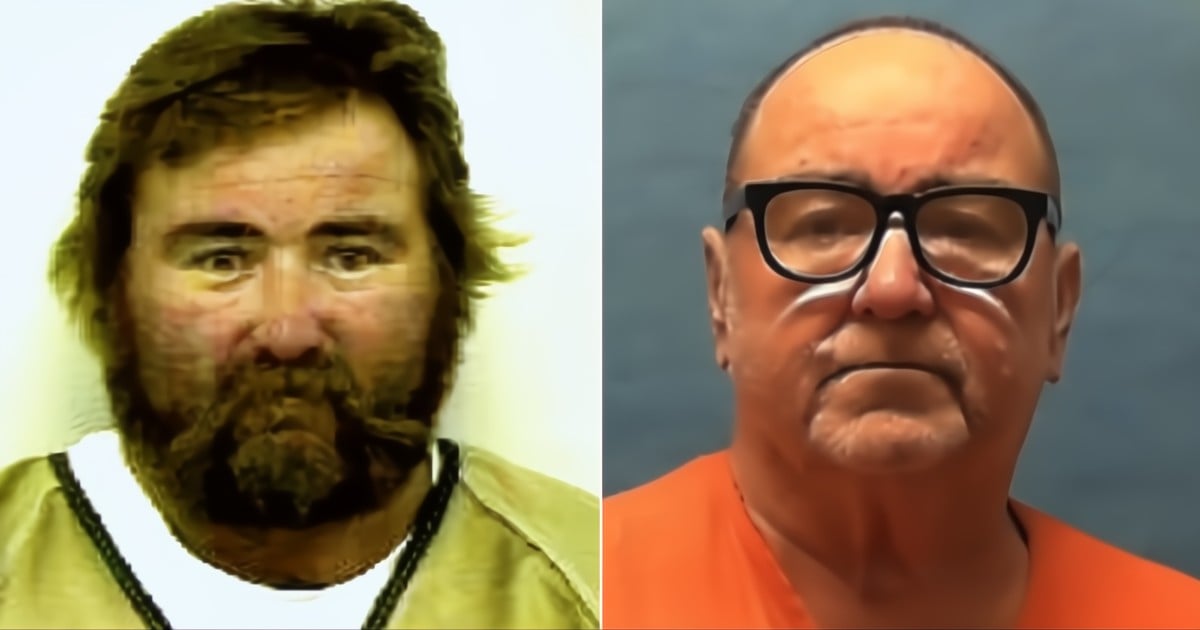Florida Governor Ron DeSantis has signed the state's first execution order for 2025, authorizing the execution of James Dennis Ford. Convicted of the gruesome murder of a couple nearly three decades ago, Ford's execution is scheduled for February 13 at Florida State Prison.
Ford was sentenced to death for the killings of Greg and Kimberly Malnory, who were brutally attacked during a fishing trip in Charlotte County back in 1997. Court documents reveal that both victims suffered severe injuries from beatings and fatal gunshots. Tragically, Kimberly was also sexually assaulted before her death. Her body was discovered near the couple's truck, where their 22-month-old baby was left abandoned for over 18 hours, exposed to the elements and covered in his mother's blood.
In addition to the murder charges, Ford was convicted of sexual assault and child abuse, further emphasizing the heinous nature of the case, as reported by the Associated Press.
DeSantis's Approach to Capital Punishment
The scheduled execution of Ford marks the first in Florida for 2025 and comes after a period of fluctuating state executions. In 2024, Florida conducted only one execution, a stark contrast to the six carried out in 2023, during DeSantis's campaign for the Republican presidential nomination.
For three years prior, DeSantis did not authorize any executions, which signaled a period of relative inactivity concerning capital punishment in the state. The resurgence of frequent executions in 2023 was interpreted by analysts as DeSantis's attempt to enhance his "tough on crime" image and appeal to more conservative voters.
Florida remains one of the leading states in the U.S. regarding the use of the death penalty, a subject that deeply divides public opinion. Since the reinstatement of capital punishment in 1976, Florida has executed 103 individuals, making it one of the most active states in enforcing this penalty.
A Notorious Case of Brutality
The case against James Ford is particularly notorious due to the sheer brutality of the crimes. The murder of the Malnory couple and the subsequent abandonment of their infant left a lasting impact on the community in 1997, making it a landmark case in Florida's criminal history.
During the trial, DNA evidence and witness testimonies led to Ford's conviction, and he has remained on death row ever since. The confirmation of his death sentence highlights Florida's stance on capital punishment. Critics have pointed out controversies within the state's judicial system, citing instances where convictions were overturned due to procedural errors or insufficient evidence.
Nonetheless, cases like Ford's, where evidence is overwhelming, strengthen the arguments of those advocating for the death penalty as a necessary tool for punishing particularly atrocious crimes.
The Ongoing Death Penalty Debate in Florida
The use of capital punishment continues to be a contentious issue both in Florida and nationwide. Proponents argue that it serves as justice for victims and a deterrent for future crimes, while opponents emphasize the risk of wrongful convictions and the high costs associated with lengthy legal processes.
In recent years, states like California and Oregon have suspended the death penalty, increasing pressure on others to reconsider its implementation. Federally, there have been significant movements regarding capital punishment. In December 2024, President Joe Biden commuted the sentences of 37 death row inmates, including an individual of Cuban descent, converting them to life sentences without parole.
This action reaffirmed the Democrat's commitment to reforming the judicial system and his opposition to the death penalty, except in exceptional cases such as terrorism and mass hate-motivated killings.
However, former President and President-elect Donald Trump has declared plans to reinstate the federal death penalty for rapists, murderers, and pedophiles upon taking office in January 2025. For DeSantis, this decision bolsters his political stance in a state where a significant portion of the population supports capital punishment, especially in cases of extreme violence like Ford's.
Despite this, the debate over its effectiveness, ethics, and costs continues, keeping it one of the most controversial topics in state criminal policy. As Ford's execution looms this February, it serves as a stark reminder to Floridians of the ongoing reality of the death penalty and the profound societal divisions it engenders.
Understanding Florida's Death Penalty Landscape
What is the significance of Ford's execution in Florida?
Ford's execution is the first scheduled for 2025, marking the continuation of capital punishment under Governor DeSantis's administration. It highlights Florida's consistent use of the death penalty despite national trends towards suspension.
How has Ron DeSantis's stance on the death penalty evolved?
Under DeSantis, Florida saw a resurgence in executions in 2023, after a period of inactivity. This shift was seen as a strategic move to bolster his tough-on-crime image during his presidential campaign.
What are the arguments for and against the death penalty in Florida?
Supporters argue it's a form of justice and deterrence, while opponents point out the risks of wrongful convictions and the high costs of legal proceedings. The debate remains deeply divisive in Florida.
